Category: Mormon Studies
-
FAIR Conference, Day 2
Below is the agenda for Day 2 of the FAIR Conference in Provo with brief bios of the speakers. I will be adding summaries of some of the sessions as the day goes by. (Disclaimer: these are on-the-fly summaries for general information and discussion. Please consult audio recordings or the transcripts that FAIR releases in…
-
FairConference, Thursday Afternoon Sessions
Bob Rees A review of Earl Wunderli’s Imperfect Book Started with this Card Colour changing trick video (http://richardwiseman.wordpress.com/2009/01/07/colour-changing-card-trick-outtakes/) to illustrate that too much focus on one thing can cause you miss the many other things that are going on. What aren’t you noticing? Emerson said, “Tell me your sect, and I’ll tell you your…
-
Socially Constructed Mormonism
This is the second post (see first post) discussing ideas presented in the recently published memoir of retired LDS sociologist Armand Mauss, Shifting Borders and a Tattered Passport: Intellectual Journeys of a Mormon Academic (Univ. of Utah Press, 2012; publisher’s page). After taking five years away from his graduate work to serve as a counselor…
-
The Problem With Correlation
Over at Worlds Without End, Seth posted Overcoming Correlation, or Mormon Studies and Pastoral Care. Why do we keep talking about Correlation? Obviously, there’s something wrong, but there are various opinions as to what exactly that is and how one might go about fixing it. After recounting his own scholarly engagement with Mormon Studies, Seth…
-
MR: Samurai Jesus: A Review of Takashi Miike’s “Hara-Kiri: Death of a Samurai”
The Mormon Review vol. 5 no. 1 is presented here, with Jonathon Penny’s review of Takashi Miike’s 2011 film Hara-Kiri: Death of a Samurai. By Jonathon Penny Open on a gaunt, intelligent looking man—Tsukumo Hanshiro—seeking the indulgence of a retinue of samurai at the palace of a feudal lord. He claims to be a ronin, a…
-
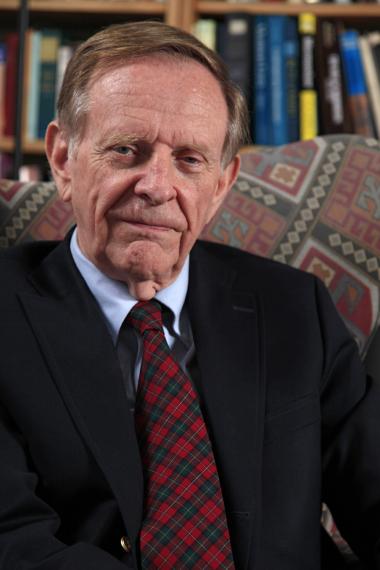
New Progress for Mormon Studies
The University of Virginia today announced today a $3 million anonymous donation to establish the Richard Lyman Bushman Chair of Mormon Studies in the University’s Department of Religious Studies. The chair is still subject to approval by the University’s Board of Visitors, after which a search committee will look for candidates for the inaugural appointment,…
-
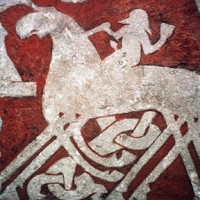
The blood of Israel in Europe
At a multi-stake conference in Berlin in 2010, Area President Erich W. Kopischke quoted Joseph Smith as having declared that “England, Germany, Norway, Denmark, Switzerland, Holland and Belgium have a considerable amount of the blood of Israel among the people which must be gathered out.”
-
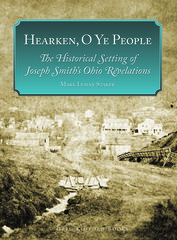
The Kirtland Church: A Review of Hearken O Ye People
I received my review copy of Hearken, O Ye People at work; I opened it and began to read on the El heading home. And, from page 1 (or, actually, page xvii), my jaw dropped. Staker started his book with an almost-15-page chronology of Kirtland, beginning in May 1796 as a group begins to survey…
-
Nothing to Apologize For (Part II)
[Times & Seasons welcomes the second in a pair of posts from Ralph Hancock this week, who previously guested with us in 2010] I argued in Part I that the move from “apologetics” to “Mormon Studies” requires a bracketing of truth claims that may serve legitimate scholarly purposes, but that carries with it certain significant risks. The New…
-
Practical Apologetics: Defining the middle path in Mormonism
Rachel’s post a couple of weeks ago, The Threat of New Order Mormons, attracted so much discussion that I would like to follow up with my own discussion of middle-path Mormons. Various terms are used to describe those who self-categorize themselves as something other than fully active, fully believing Mormons: Uncorrelated Mormons, Cultural Mormons, New…
-
Guest Post: Why I Find Developments at the Maxwell Institute Concerning
[A guest post by Professor David Earl Bohn, retired professor of political philosophy at Brigham Young University] Recently, the Maxwell Institute announced a significant change of course on its website—one that re-directs the Institute’s focus away from apologetics and Mormon-centered research and toward a more generic emphasis on religious scholarship. The “bloggernacle” had actually been…
-
MR: Exquisitely Loud and Indelibly Close
The Mormon Review vol. 4 no. 1 is presented here, with Jonathon Penny’s review of Stephen Daldry’s 2012 film Extremely Loud and Incredibly Close. By Jonathon Penny I’m late with this, as with so much in my dog-eared, half-buttoned, last minute, Subway-sandwiched, twenty-first century life. I wrote the other day, on reflection about the harried…
-
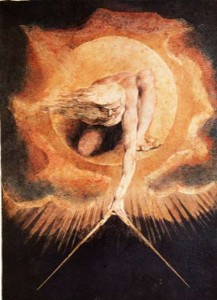
Exploring Mormon Thought: Sex
I don’t know much about God (which is probably pretty obvious), but I have thought a lot about sex.
-
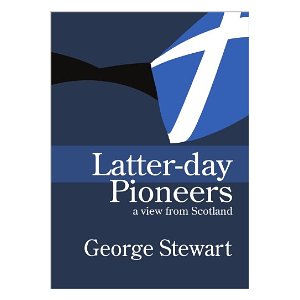
International Bibliography 2011
This year I’ve again managed to put together a bibliography of international works on Mormonism. While I thought the list was substantial last year, it is much larger this year, at least in part because I think I’ve gotten better at finding what has been published. With any luck this will help call attention to…
-
Notes: Mormonism and the Internet
Below are notes from today’s live-streamed presentations at Utah Valley University’s Mormonism and the Internet conference. I will bold particular comments that stand out as I listen. Readers are welcome to make additional observations in the comments. Any reader attending in person?
-
Call for Papers: IV Brazilian Mormon Studies Conference
IV Brazilian Mormon Studies Conference Annual Conference of the ABEM (Associação Brasileira de Estudos Mórmons) Theme “The Relationship between Headquarters and Periphery in the LDS Church” January 19, 2013 São Paulo, Brazil Call for Papers In 1830, Joseph Smith organized the Church of Christ in Manchester, New York State, when the movement had only…
-
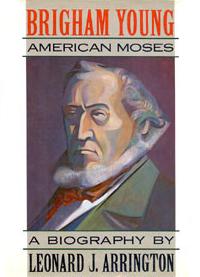
Apostle Biographies or “Holes in our History?”
Often I find that I am annoyed with the focus of much of Mormon History studies today. The articles and books published seem to mostly cover the Joseph Smith and Brigham Young eras, along with a bit of the later Utah period, up to the turn of the century. At least, that is my perception.
-
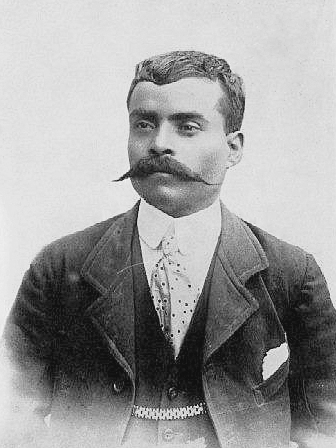
Conference Report: 3rd Brazilian Mormon Studies Conference
I returned yesterday from attending the 3rd annual conference of the Associação Brasileira de Estudos Mórmons (Brazilian Mormon Studies Association) inspired with the fascinating subjects covered during the conference and ready to dive into another year of research in preparation for next year’s conference. In particular, one presentation was groundbreaking, changing the perception of Mormonism…
-
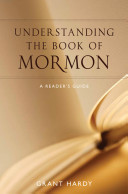
12 Questions with Grant Hardy – part II
Here is the conclusion of Times & Seasons look at Grant Hardy’s new book Understanding the Book of Mormon, and the second half of our 12 Questions interview:
-

12 Questions with Grant Hardy – part I
To cap off our roundtable review of Grant Hardy’s new book Understanding the Book of Mormon we’re fortunate to feature an interview with the book’s author. The interview will be posted in two parts. Our thanks to all who have participated, and especially Bro. Hardy.
-
Books of Interest to the LDS Nerd
A few of these are forthcoming, a few have appeared recently. I am compelled to read them all, as soon as I can get to them. Now Available Charles Harrel,“This Is My Doctrine”: The Development of Mormon Theology (Kofford Books) “In this first-of-its-kind comprehensive treatment of the development of Mormon theology, Charles Harrell traces the…
-
Mormon Studies Courses
A few years ago I came across a list of Mormon Studies courses complied by BYU professor Gideon Burton in 2008, the same year that the Claremont Graduate University started their Mormon Studies program and a year after Utah State started its program. Since it has been a few years, I thought Gideon’s list should…
-
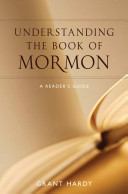
Grant Hardy and Personal Scripture Study
Every semester, one of my principal goals in my tax classes is to get my students to engage with the Internal Revenue Code. And it’s harder than you might think: often they don’t read the Code itself, focusing instead on the explanations in their casebook.[fn1] And their aversion to reading the Code is completely understandable:…
-
An Unsettling Book: Grant Hardy’s Understanding the Book of Mormon
This is the fourth in a series of reviews of Grant Hardy’s Understanding the Book of Mormon: A Reader’s Guide (OUP, 2010) that we are posting this week at Times and Seasons. It says something about the book that there is still a lot to talk about.
-
Call for Papers: 3rd Brazilian Mormon Studies Conference
3rd Brazilian Mormon Studies Conference Annual Conference of the Associação Brasileira de Estudos Mórmons (Brazilian Mormon Studies Association –ABEM) January 28, 2012 São Paulo, Brazil Call for papers “Mormonism and its relationship with other denominations” The Mormon religious tradition is based on the concept of an apostasy by all Christian denominations and their consequent lack…
-
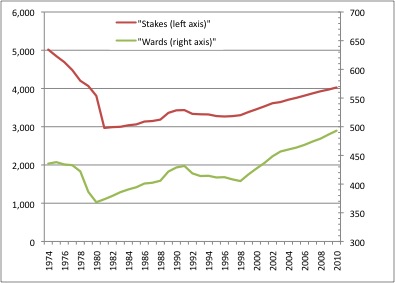
The Implied Statistical Report, 2010
A couple of years ago my post The Implied Statistical Report, 2008, looked at what can be learned from a detailed examination of the data the Church releases each April Conference. This conferences’ data includes an additional statistic not found in earlier reports, the number of Church Service Missionaries, which led me to look again…
-
A tool for Conference analysis
While we know that gospel principles are eternal, we must also admit that the language used to describe them changes over time. And now we have a tool for discovering and analyzing how Church leaders have changed their descriptions of the gospel over the past 160 years.
-
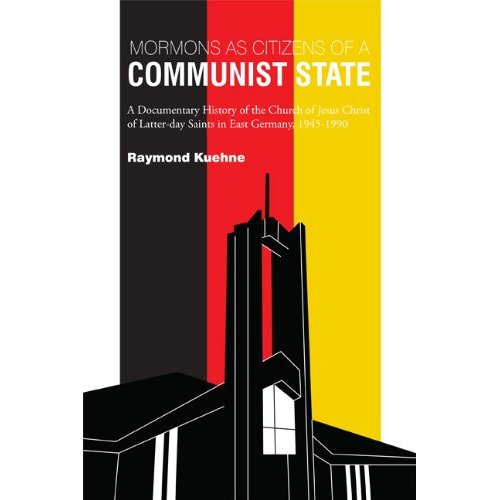
International Bibliography 2010
With the growth of the LDS Church worldwide, I think few academics of Mormonism disagree that the Church’s international progress deserve more attention. Even so, I was surprised when I compiled a list of international publications from last year. The list is substantial.
-
MR: Death Is Lighter than a Feather: A Review of C.S. Lewis’ The Great Divorce
A new issue of The Mormon Review is available, with Adam Greenwood’s review of The Great Divorce, by C.S. Lewis. The article is available at: Adam Greenwood, “Death Is Lighter than a Feather: A Review of C. S. Lewis’ The Great Divorce,” The Mormon Review, vol.3 no. 1 [HTML] [PDF] In this essay, Greenwood reads…
-
MR: Groundhog Day
A new issue of The Mormon Review is available, with Adam Miller’s review of Groundhog Day, directed by Harold Ramis. The article is available at: Adam Miller, “Groundhog Day,” The Mormon Review, vol.2 no. 5 [HTML] [PDF] For more information about MR, please take a look at the prospectus by our editor-in-chief Richard Bushman (“Out…
